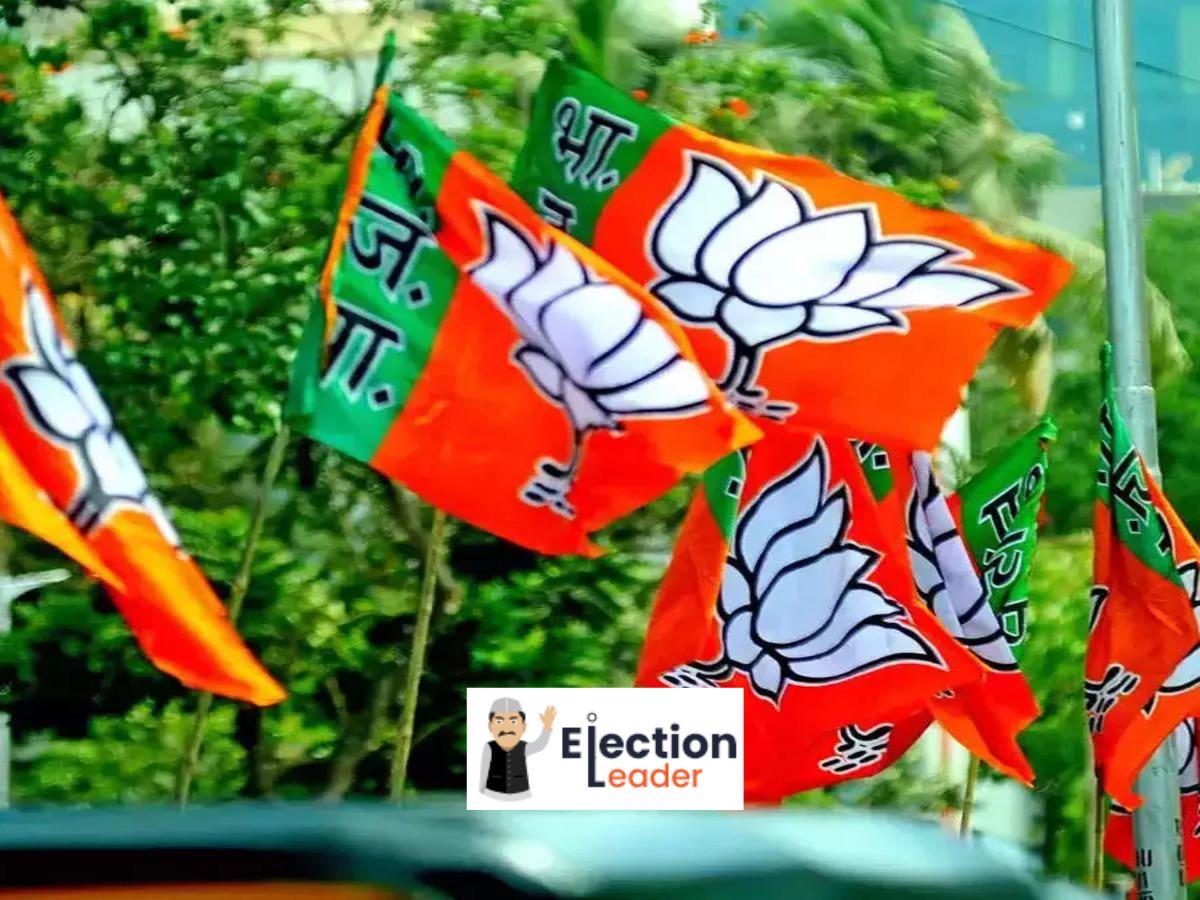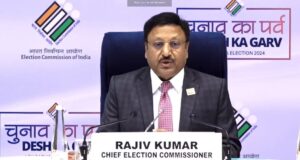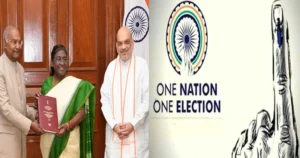Table of Contents
ToggleIntroduction
The Bharatiya Janata Party (BJP) has shown a calculated approach in allocating tickets for the upcoming elections in the states of Rajasthan and Madhya Pradesh, reflecting the changing political climate in India.

The BJP has demonstrated a keen sense of caution in its candidate selection, given the potential to profoundly influence both the future of individual states and national politics. This article examines the importance of these elections, the variables that influenced the distribution of tickets, and the possible outcomes for the BJP and the states.
The Stakes in Rajasthan and Madhya Pradesh
States like Madhya Pradesh and Rajasthan have a long political history and have had a significant impact on the country’s terrain. Over the years, they have been crucial in determining the political trajectory of numerous parties.
Rajasthan, a state in India famed for its varied population, has served as a political hotbed. In recent years, it has alternated between the Congress and the BJP. With 200 assembly seats in the state, the next election offers the BJP a chance to increase its influence and bolster its position in western India.
Madhya Pradesh holds the same importance with its 230 assembly seats. After a protracted reign of power, the Congress defeated the BJP in the 2018 assembly elections. Regaining the state would be a significant success for the BJP, as it is frequently regarded as a political gauge of the mood of the country.

Considering the significance of these states, the BJP must carefully choose candidates who will win over the public and ensure a positive outcome. The party’s strategy is being guided by several important elements.
Advantage of Incumbency: The governments of Madhya Pradesh and Rajasthan have changed recently. The BJP now has a chance to take advantage of the public dissatisfaction with the current administration. The party wants to come across as a respectable substitute.
Election Promises: The policies and plans that the BJP plans to implement in these states are strongly correlated with the tickets that they are offering. Candidates are being selected based on how well they can convey these commitments. Infrastructure, employment creation, and economic development are probably going to be the campaign’s main themes.
Regional Representation and Demographics: The BJP is working to make sure that candidates represent the diversity of the states. This involves choosing candidates who will appeal to a wider spectrum of voters by coming from different communities and locations.
Strategies for Winning: The BJP has always had a cadre-based stance in elections, emphasizing tactics and workers at the grassroots level. It is essential to choose candidates who have the ability to energize the party’s base and inspire voters.
Anti-Incumbency Sentiment: In recent years, anti-incumbency sentiment has been observed in both Madhya Pradesh and Rajasthan. The BJP is running candidates who can capitalize on this sentiment because they expect it to go in their favor.
Experience and Electability: The BJP is also considering a candidate’s electability and experience. This entails evaluating their political background and voter appeal.
Political Realities and Alliances: The BJP is aware of the political realities on the ground. When needed, it seeks to strengthen ties with powerful local leaders and political parties in order to increase its prospects.
Consequences of BJP's Caution
The BJP’s careful approach to ticket distribution in Rajasthan and Madhya Pradesh has several potential consequences:
Electoral Advantage: The BJP hopes to obtain an electoral edge by choosing candidates who can effectively connect with voters and convey the party’s goals. This strategy fits with the party’s goal of taking control of these states.
Impact on National Politics: The BJP’s gains in Rajasthan and Madhya Pradesh would have ramifications for both national politics and the party’s regional dominance. It would increase the party’s authority and clout on the national scene and show off its ongoing appeal to voters.
Party Cohesion: The party can be made more cohesive by carefully choosing candidates who share its fundamental beliefs. It guarantees that the party puts up a cohesive front and reduces the possibility of internal disputes.
Voter Message: The BJP’s dedication to development and sound administration is communicated to voters through the choice of candidates. Additionally, it shows how receptive the party is to the needs and goals of the area.
Long-term Strategy: The BJP has a long-term plan that includes how it would approach these elections. The party hopes to leave a long-lasting political legacy in Rajasthan and Madhya Pradesh by forging a strong presence in these states.
Accountability: The BJP is responsible for the performance of the candidates it chose, as well as for its cautious attitude. It puts pressure on the party to fulfill the expectations of the people and keep its word.
Conclusion
The BJP’s allocation of tickets in Rajasthan and Madhya Pradesh is not just a routine administrative duty; rather, it is a calculated move to establish a more robust presence in these politically consequential states. The results of these elections will be carefully monitored, both for their effect on the individual states and for possible ramifications on federal politics.
The BJP’s goal to establish itself as a powerful political force in India is reflected in the meticulous choice of candidates. Additionally, it demonstrates the party’s flexibility in reacting to local conditions and the requirement for responsive governance. Whether the BJP’s cautious approach pays off and whether it can effectively convert its candidate selection method into electoral victory will be revealed in the coming months.
People also ask
Which is more developed Rajasthan or Madhya Pradesh?
Unquestionably, Rajasthan. While Rajasthan and MP both lack significant socioeconomic development and remain below the national average in several areas, they have made significant progress over the past 10 to 15 years. Both states can undoubtedly serve as models for other states that speak Hindi if they receive more local support.
Which is better Rajasthan or Madhya Pradesh?
The state of M.P. does not have as many tourism amenities as Rajasthan has. It will also rely on your areas of interest. For example, if you are interested in wildlife, you may also include Ranthambhore National Park in Rajasthan or a couple national parks in M.P., such as Bandhavgarh or Kanha.
What are the similarities between Rajasthan and Madhya Pradesh?
Madhya Pradesh and Rajasthan are two neighbouring states in India, sharing a long border with each other. Similarities: Culture and Traditions: Both states have a rich cultural heritage and are known for their colourful folk music and dance forms, traditional festivals, and vibrant handicrafts.
What is the old name of Madhya Pradesh?
The Central Provinces and Berar were renamed Madhya Pradesh with Nagpur as its capital a few years after India gained its independence; this state covered the southern portions of today’s Madhya Pradesh and the northeastern area of today’s Maharashtra.





